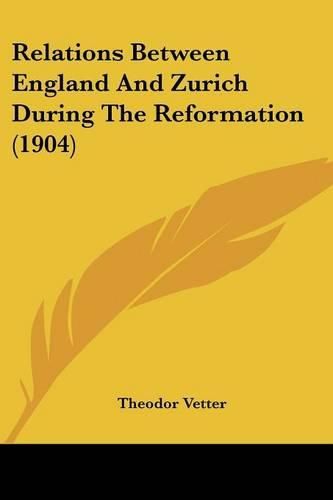Readings Newsletter
Become a Readings Member to make your shopping experience even easier.
Sign in or sign up for free!
You’re not far away from qualifying for FREE standard shipping within Australia
You’ve qualified for FREE standard shipping within Australia
The cart is loading…






Purchase of this book includes free trial access to www.million-books.com where you can read more than a million books for free. This is an OCR edition with typos. Excerpt from book: style. We hear of him for the first time in 1540,‘ he seems to have visited Zurich in 1542, and he is from that period onward, for about thirty-seven years, one of the most interesting correspondents. Hilles left his country, because he was afraid of persecution, and earned his living as a cloth-merchant chiefly at Strasburg, although there are also letters dated from Frankfort, London, or Antwerp. When he writes, his regular topic is, of course, the state of the affairs of the church, but so many items of worldly news, evidently received from trustworthy sources, are inserted, that we get vivid glimpses into the public as well as into the private life of that period. For his Zurich friends the descriptions of Thomas Cromwell’s fall and execution (28th July, 1540), of the king’s proceeding against Anne of Cleves, of his marriage with Catharine Howard, of the execution of her uncle, the duke of Norfolk and her cousin, Henry Howard Earl ofSurrey,1 the poet, must have been of great interest, at a time when no newspapers or periodicals informed the people of the events of the world. 1 Zwingliana 1899, p. IOO. The accession of King Edward fills him with great joy, for now he may return to his native country and his children, born abroad, are naturalized.2 Six years later, on the 9th of July, 1553, i. e. three days after king Edward’s death, Richard Hilles in a letter to Bullinger expresses his deep regret that England had lost that promising sovereign, but he is full of hopes for the future, knowing that Queen Jane (Lady Jane Grey) will protect the new doctrine: Yet we are not altogether without God’s mercy, since he has now ordained such a successor to so pious a king, under whom we have great hopes that we, her subjects, shall nevertheless be able to live a godly, quiet, and t…
$9.00 standard shipping within Australia
FREE standard shipping within Australia for orders over $100.00
Express & International shipping calculated at checkout
Purchase of this book includes free trial access to www.million-books.com where you can read more than a million books for free. This is an OCR edition with typos. Excerpt from book: style. We hear of him for the first time in 1540,‘ he seems to have visited Zurich in 1542, and he is from that period onward, for about thirty-seven years, one of the most interesting correspondents. Hilles left his country, because he was afraid of persecution, and earned his living as a cloth-merchant chiefly at Strasburg, although there are also letters dated from Frankfort, London, or Antwerp. When he writes, his regular topic is, of course, the state of the affairs of the church, but so many items of worldly news, evidently received from trustworthy sources, are inserted, that we get vivid glimpses into the public as well as into the private life of that period. For his Zurich friends the descriptions of Thomas Cromwell’s fall and execution (28th July, 1540), of the king’s proceeding against Anne of Cleves, of his marriage with Catharine Howard, of the execution of her uncle, the duke of Norfolk and her cousin, Henry Howard Earl ofSurrey,1 the poet, must have been of great interest, at a time when no newspapers or periodicals informed the people of the events of the world. 1 Zwingliana 1899, p. IOO. The accession of King Edward fills him with great joy, for now he may return to his native country and his children, born abroad, are naturalized.2 Six years later, on the 9th of July, 1553, i. e. three days after king Edward’s death, Richard Hilles in a letter to Bullinger expresses his deep regret that England had lost that promising sovereign, but he is full of hopes for the future, knowing that Queen Jane (Lady Jane Grey) will protect the new doctrine: Yet we are not altogether without God’s mercy, since he has now ordained such a successor to so pious a king, under whom we have great hopes that we, her subjects, shall nevertheless be able to live a godly, quiet, and t…